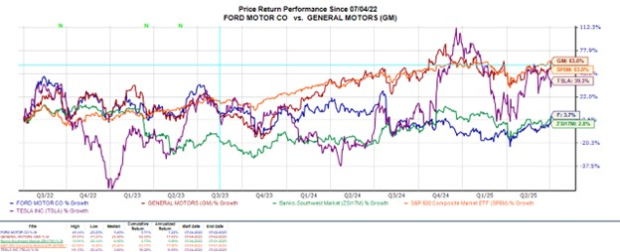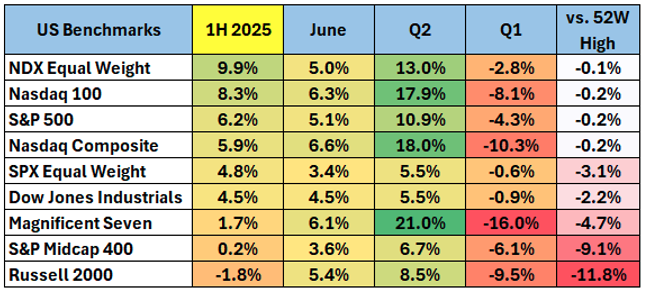InvestorPlace – Stock Market News, Stock Advice & trading Tips
Editor’s note: “How the Medical Industry Could Produce the Biggest AI Stock Winners” was previously published in April 2024. It has since been updated to include the most relevant information available.
A bulk of the AI-related headlines that dominate the mainstream media have been centered around software developers and their AI assistants, like OpenAI’s ChatGPT and Microsoft’s (MSFT) Copilot. But the biggest AI stock boom is happening in an entirely different sector. And for the most part, it’s gone largely unnoticed.
We’re talking about biotech stocks.
Between early November 2023 and late February 2024, the SPDR S&P Biotech ETF (XBI) soared more than 55%. And certain biotech stocks rocketed much more.
Year-to-date, Elevation Oncology (ELEV) is up more than 600%. Skye Bioscience (SKYE) is up nearly 380%, and Corbus Pharmaceuticals (CRBP) is up more than 525%.
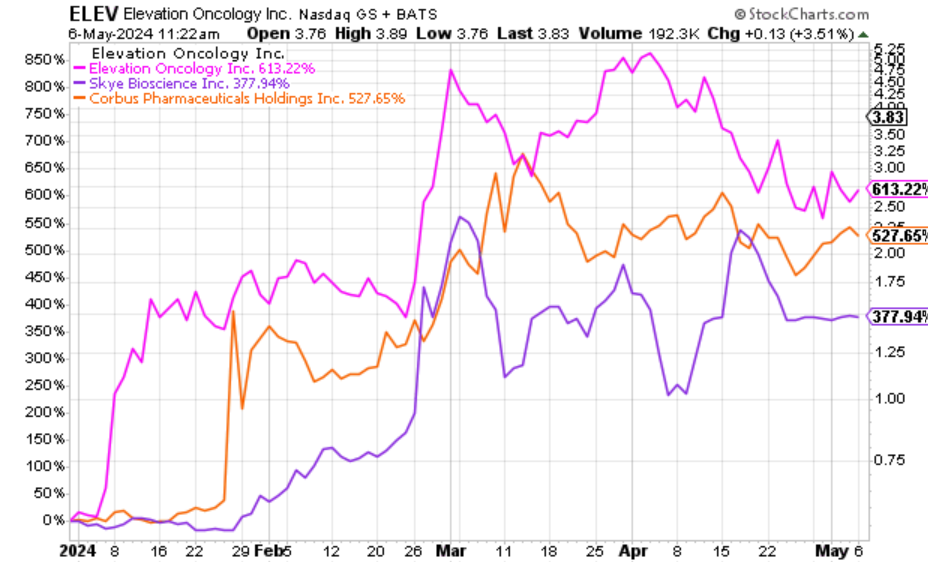
Why the huge breakout in biotech?
In part, it’s thanks to AI. And considering that this powerful emerging technology is still in its infancy, we think there’s a ton of room for these stocks to run.
It’s All About the Data
AI’s application in biology holds the potential to unlock enormous economic value for one simple reason: data.
The more data, the better the AI.
And when it comes to the human body, there is no dearth of quality data. In fact, there is more high-quality data than anywhere else on Earth.
That’s because, like computers, humans are really nothing more than a bunch of data strung together.
At their core, computers are just a bunch of 1s and 0s coded in sequence, with each number corresponding to a certain action for the computer to perform. Humans, similarly, are a bunch of As, Gs, Cs, and Ts strung together – or the four base types found in human DNA molecules – with each determining a person’s characteristics, traits, and even actions.
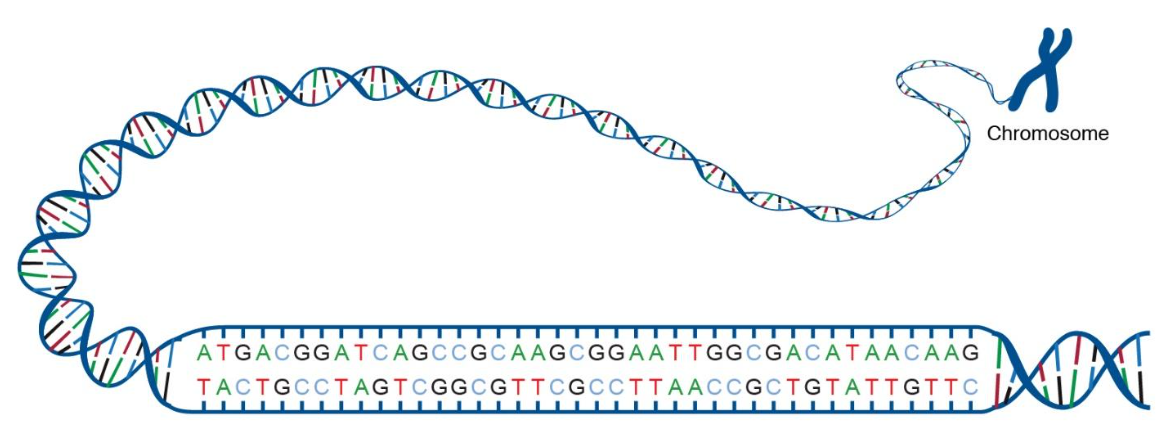
Humans are full of data.
Apply AI to all that data, and you will change the world.
Revolutionizing Medicine With AI
The human body has proven to be quite a complex thing. There’s certainly no scarcity of illness or disease that impact folks around the world. And while humanity has made great strides in discovering treatments and cures, countless afflictions remain a reality.
But AI has the potential to solve the myriad problems that plague all humans.
Consider this: It takes about $900 million and 13.5 years to develop a new successful drug.
The drug development process is so expensive and time-consuming that firms cannot afford to push that many drugs forward. This creates a huge shortage in drug candidates and programs relative to what is possible given all the permutations of human biological data.
But AI can significantly shorten and cheapen this process.
Why does it take so long to find new drugs? Because the universe of biological data is enormous. It takes scientists great effort to sort through all the data, uncover the root causes of diseases, and formulate compounds to fight those diseases.
But AI can automate that entire process. It can map out genetic data, identify mutations, and run simulations to find the right compounds and combat those mutations – all almost instantly.
Essentially, researchers can use AI to find new drug candidates much faster than is currently possible.
And this is already happening.
Last year, Japanese pharma giant Takeda Pharmaceutical (TAK) bought an experimental psoriasis drug for $4 billion – a drug that was created in only six months by using AI.
It isn’t alone.
Other pharma giants like Bayer, Roche, Sanofi (SNY) and AstraZeneca (AZN) are actively using AI technology for drug discovery purposes.
The future of AI-powered drug discovery starts now.
This is big business.
The Final Word
Research firm Deep Pharma Intelligence estimates that investments in the field of AI-powered drug discovery have tripled over the past four years to nearly $25 billion.
Morgan Stanley believes this tech will lead to an additional 50 novel therapies being brought to market over the next decade, with annual sales in excess of $50 billion!
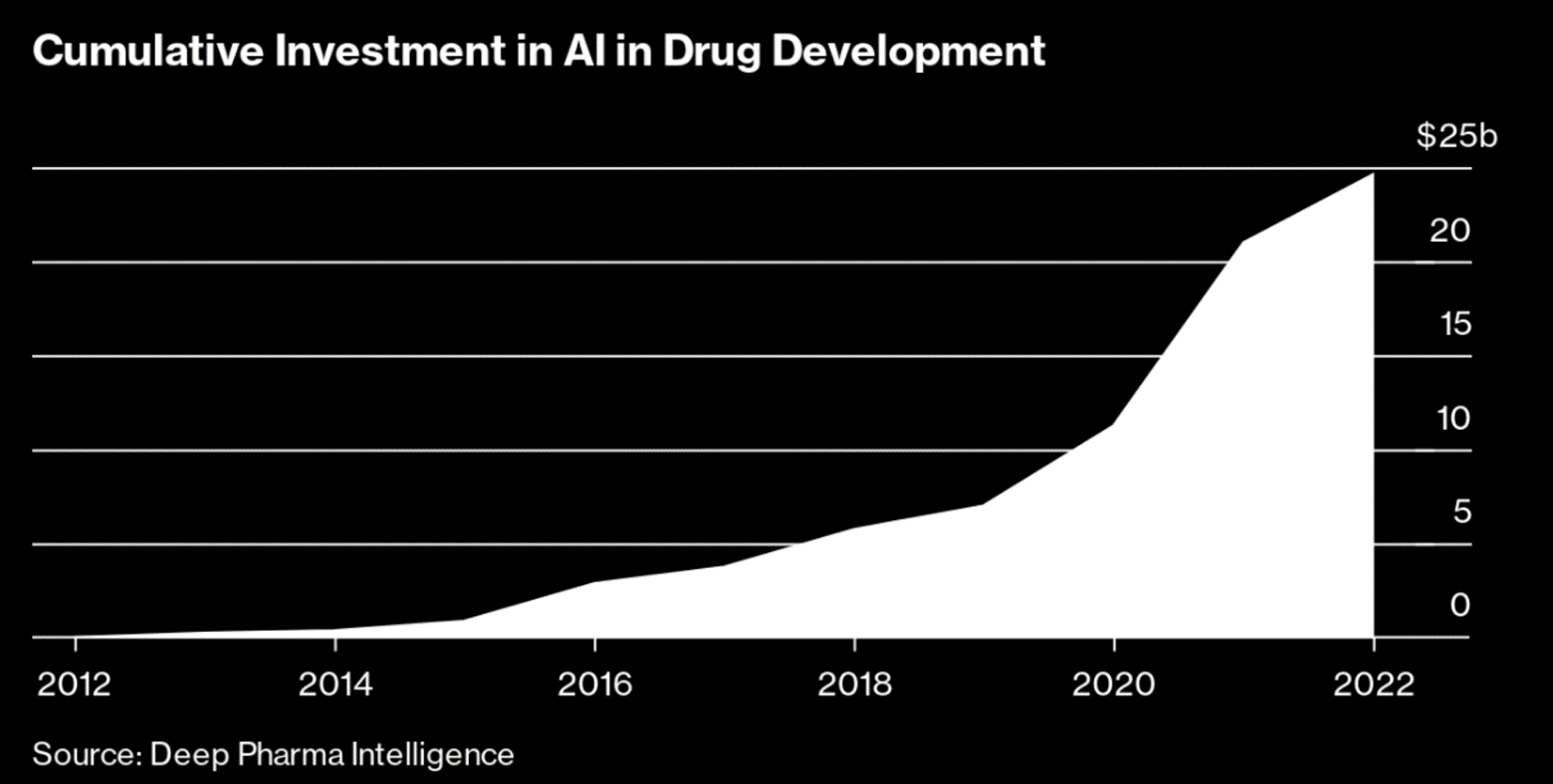
In other words, a $50 billion AI drug discovery revolution starts now.
And, of course, AI’s applications in healthcare aren’t limited to discovering viable drug candidates.
In fact, back in March, Nvidia (NVDA) held its GPU Technology Conference (GTC), an event for AI developers and enthusiasts. And the tech titan revealed that it’s partnering with Johnson & Johnson (JNJ). The two will develop AI to help doctors perform surgery.
This is a huge development. After all, according to Nvidia, “J&J MedTech is in 80% of the world’s operating rooms and trains more than 140,000 healthcare professionals each year.” It’s very likely that within the next decade, almost all surgeries will be at least partially automated by AI.
The potential that artificial intelligence holds for the healthcare industry is enormous. And as such, it’s high time to bulk up your portfolio with top-of-the-line AI stocks.
Discover which high-octane stocks we’re piling into.
On the date of publication, Luke Lango did not have (either directly or indirectly) any positions in the securities mentioned in this article.
P.S. You can stay up to speed with Luke’s latest market analysis by reading our Daily Notes! Check out the latest issue on your Innovation Investor or Early Stage Investor subscriber site.
More From InvestorPlace
The post How the Medical Industry Could Produce the Biggest AI Stock Winners appeared first on InvestorPlace.
The views and opinions expressed herein are the views and opinions of the author and do not necessarily reflect those of Nasdaq, Inc.



